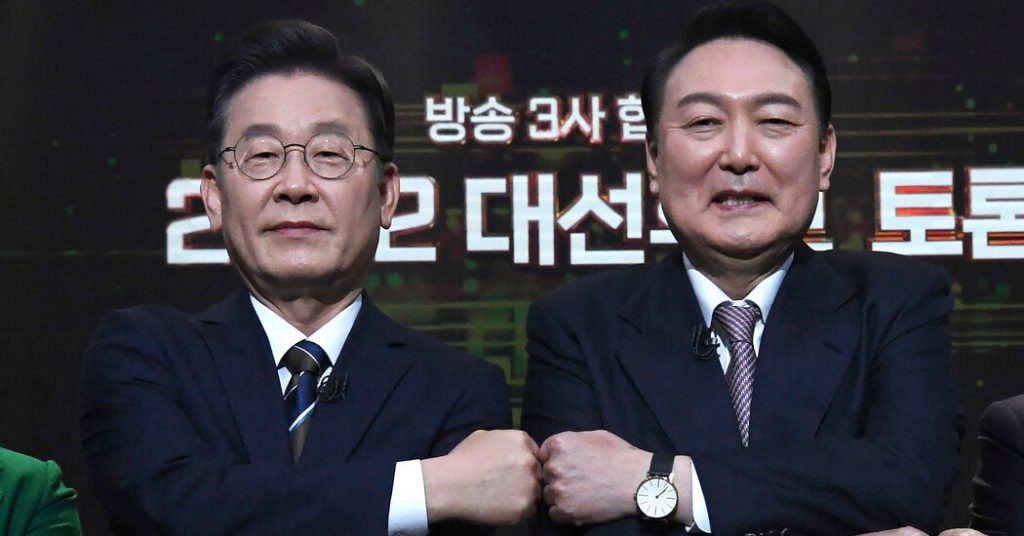The upcoming elections in South Korea are not just about filling the 300 seats in Parliament; they are also a battleground between President Yoon Suk Yeol and opposition leader Lee Jae-myung. The rivalry between these two leaders, known as “gladiator politics,” has divided the nation. The electorate is split between hard-line supporters who either want to impeach Yoon for abuse of power or imprison Lee for corruption. The animosity between the two candidates has made this election one of the most contentious and divisive in South Korean history.
The economic and social landscape in South Korea is fueling voter discontent. The economy is sluggish, the birth rate is at a record low, and the younger generation is facing financial challenges that threaten their future prosperity. Amidst these crises, the political climate is more divided than ever, with online platforms disseminating hate speech and violence becoming increasingly common. This toxic environment has resulted in physical attacks on politicians, with Lee being stabbed and a lawmaker being targeted in separate incidents.
Yoon and Lee’s parties have engaged in a smear campaign against each other, focusing more on demonizing their rivals than addressing the country’s pressing issues. The political atmosphere in South Korea has been characterized by revenge and resentment, with previous presidents pursuing criminal investigations against their predecessors and rivals. The ongoing feud between Yoon and Lee has escalated since the 2022 presidential election, with Yoon’s government targeting Lee with multiple investigations and criminal charges.
In the lead-up to the parliamentary elections, both Yoon and Lee’s parties have been releasing promises to address key issues like the low birth rate. However, the focus of their campaigns has been on attacking each other rather than presenting concrete solutions to the country’s problems. The election is seen as a contest between the two main parties for majority control in Parliament, but smaller parties have also joined the fray. The outcome of the election could have significant implications for the political future of both Yoon and Lee, potentially shaping the landscape for the 2027 presidential election.
Yoon and Lee come from starkly different backgrounds, adding cultural dimensions to their political rivalry. Yoon, a former prosecutor and son of a college professor, is praised by his supporters for his strong stance against North Korea and close ties with the United States. However, critics accuse him of elitism and authoritarian tendencies, with his administration being scrutinized for crackdowns on dissent and press freedom. Meanwhile, Lee, a former sweatshop worker who rose to become a labor lawyer and mayor, is seen as an outsider who can challenge the establishment. However, allegations of corruption and abuse of power have tarnished his reputation and raised concerns about his leadership style.
Overall, the outcome of the upcoming elections is expected to deepen the existing political polarization in South Korea. With issues like the economy, low birth rates, and welfare taking a back seat to the personal vendettas between Yoon and Lee, the electorate is left divided and frustrated. The election is not just about choosing representatives for Parliament but also about signaling support for one of two leaders locked in a bitter power struggle. As South Koreans head to the polls, the results could have far-reaching implications for the country’s political landscape and the future direction of its governance.


